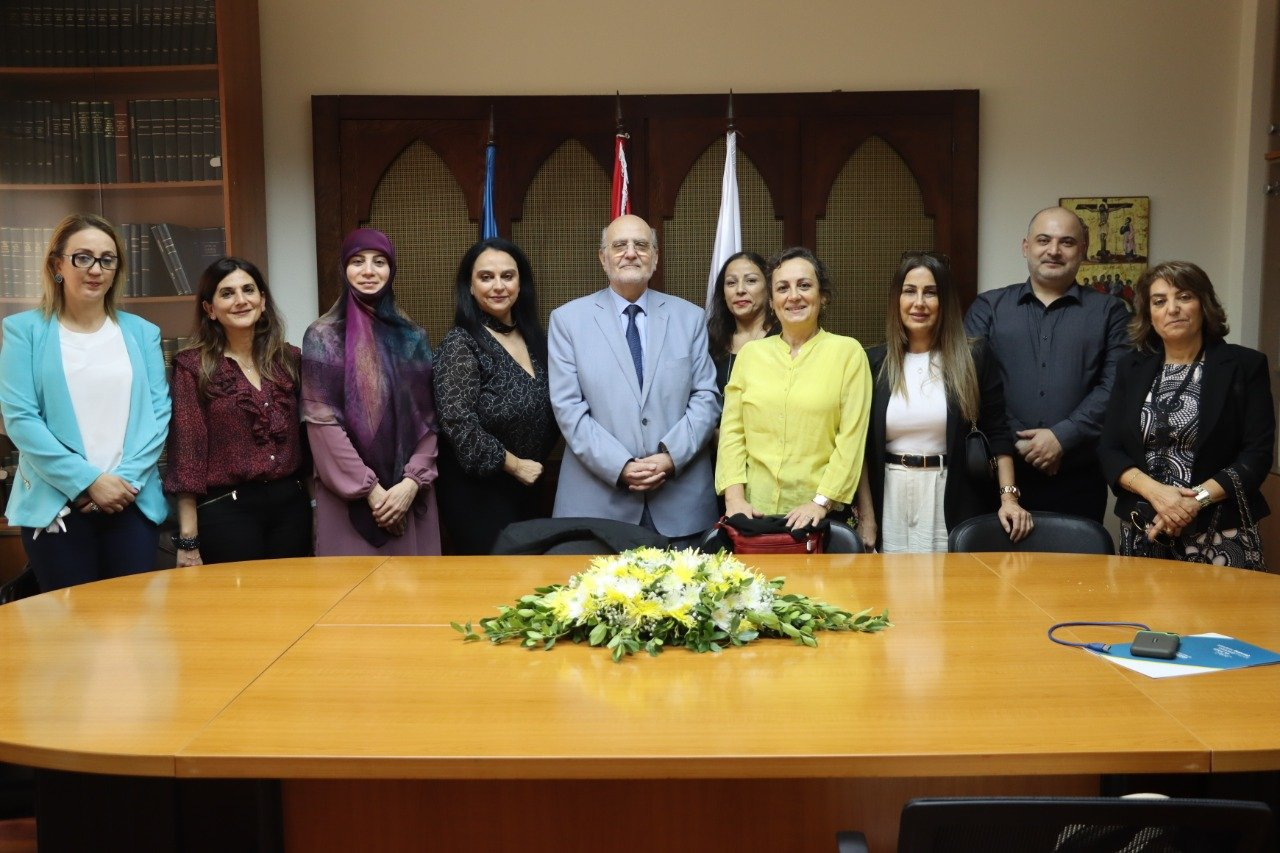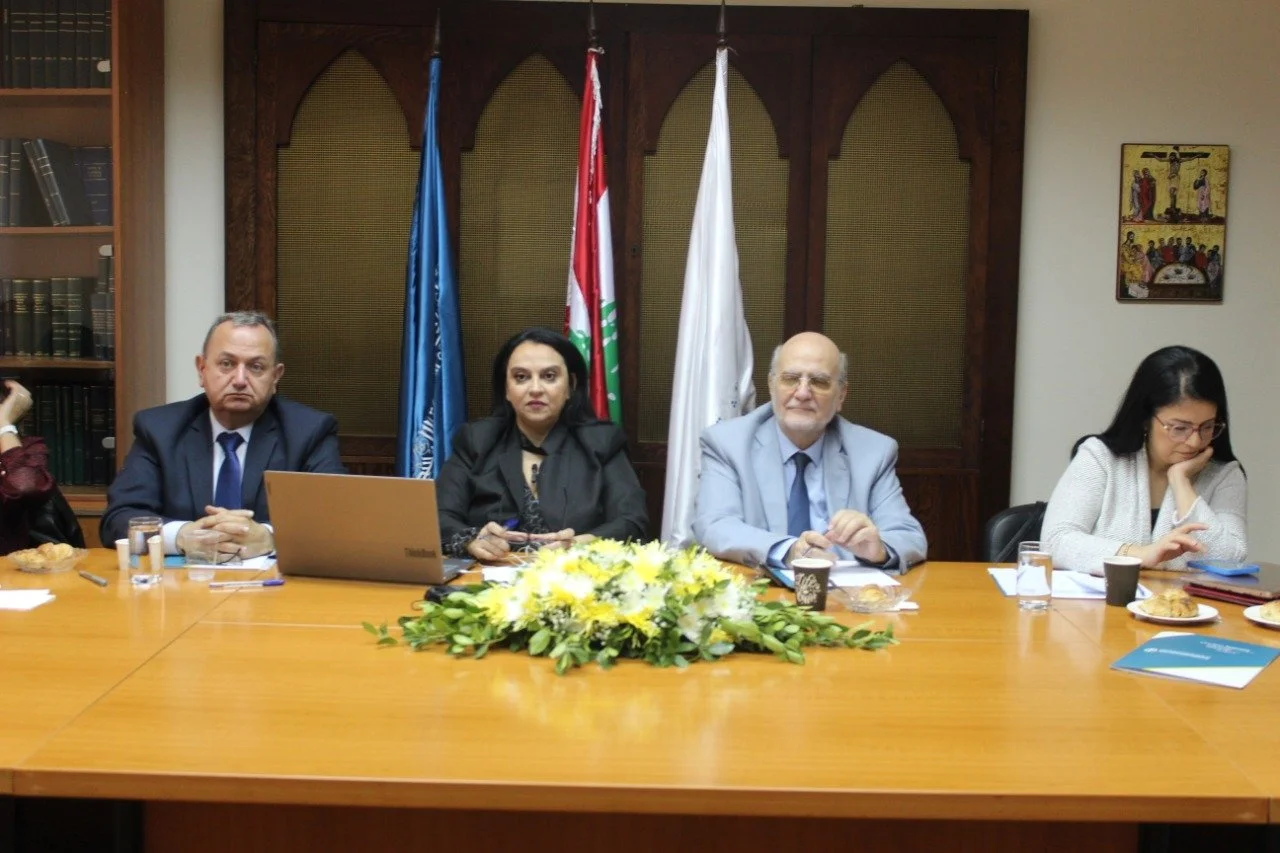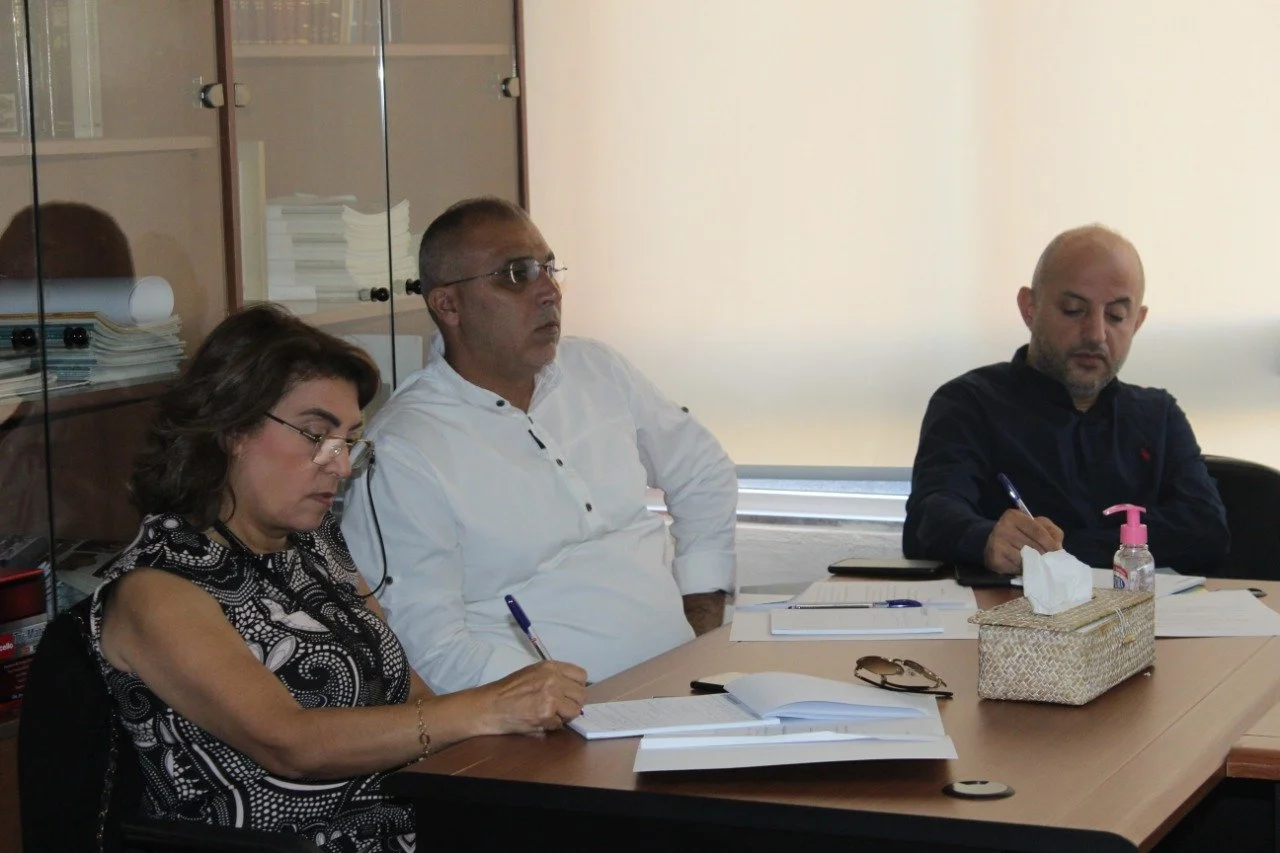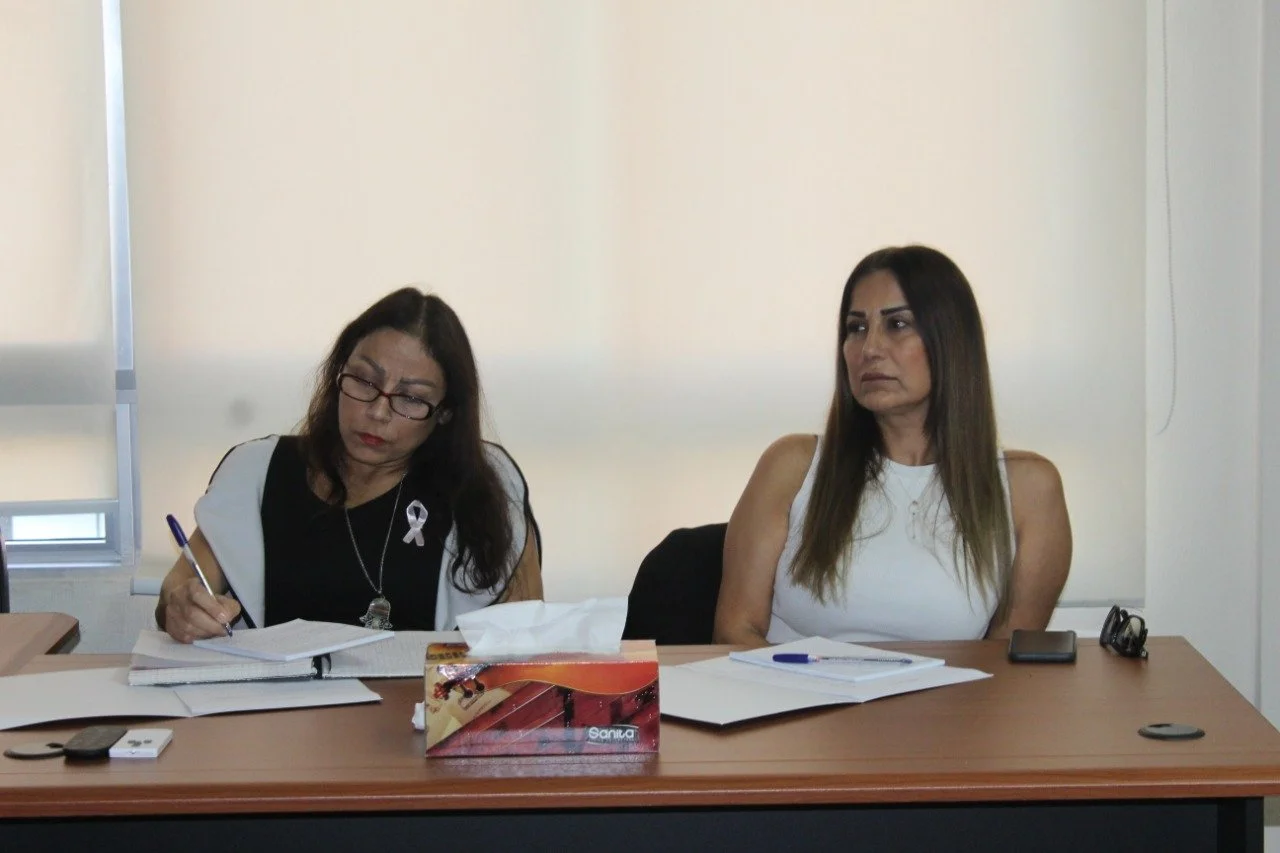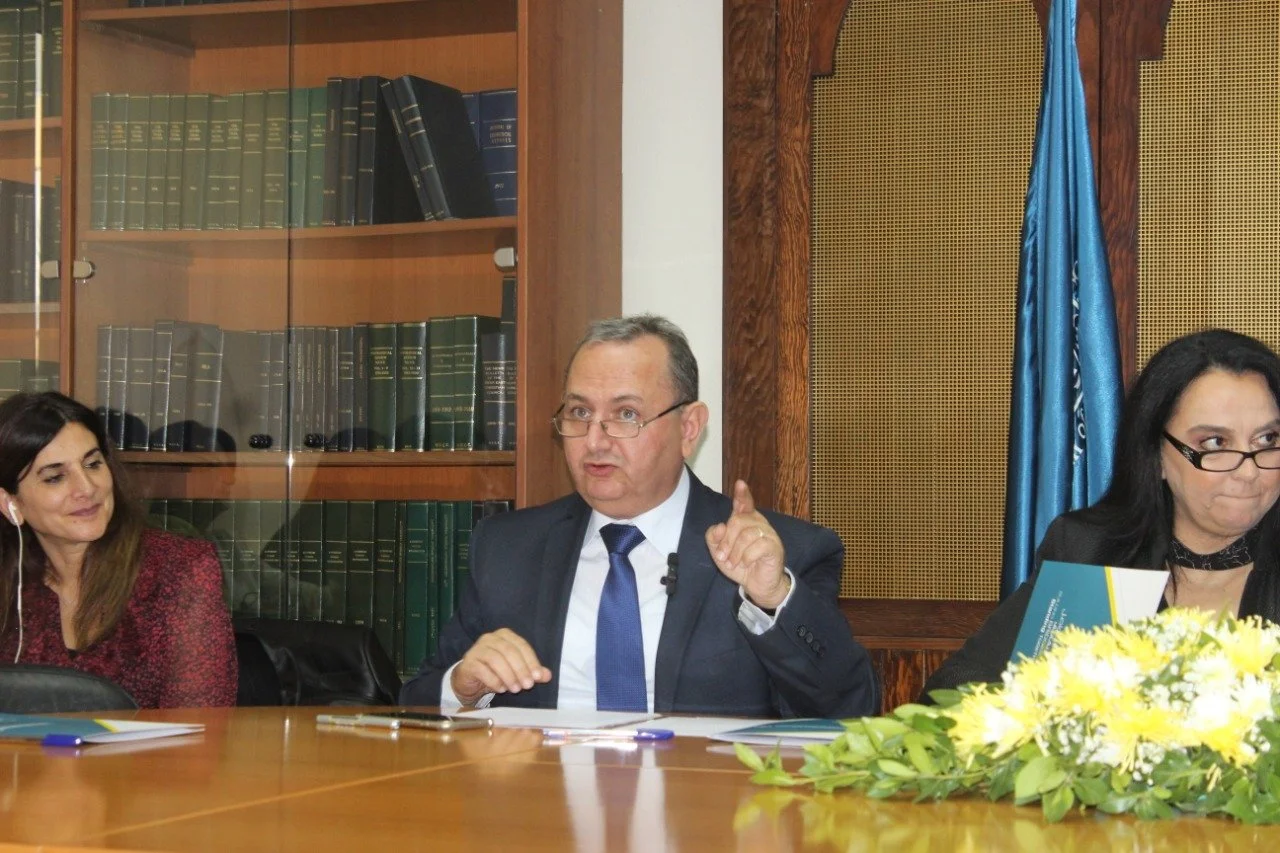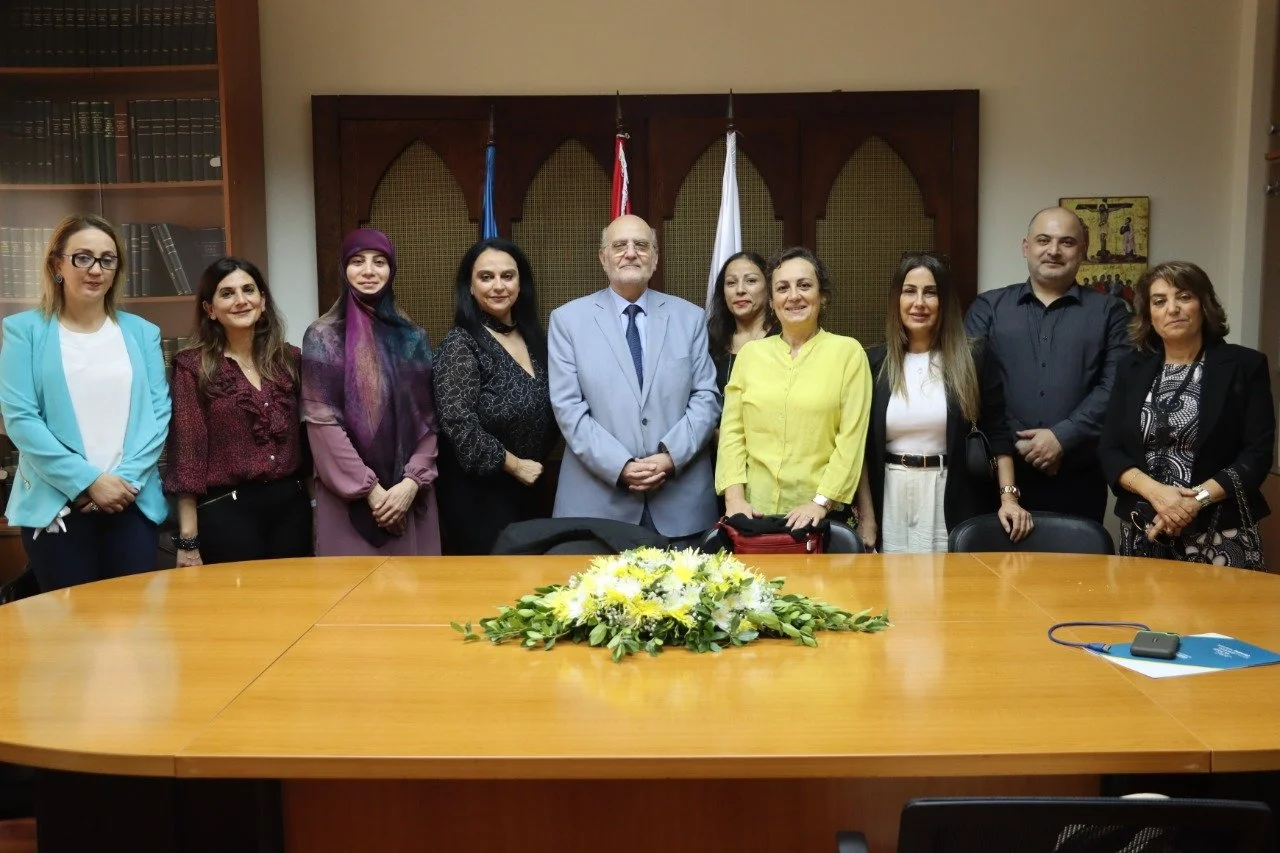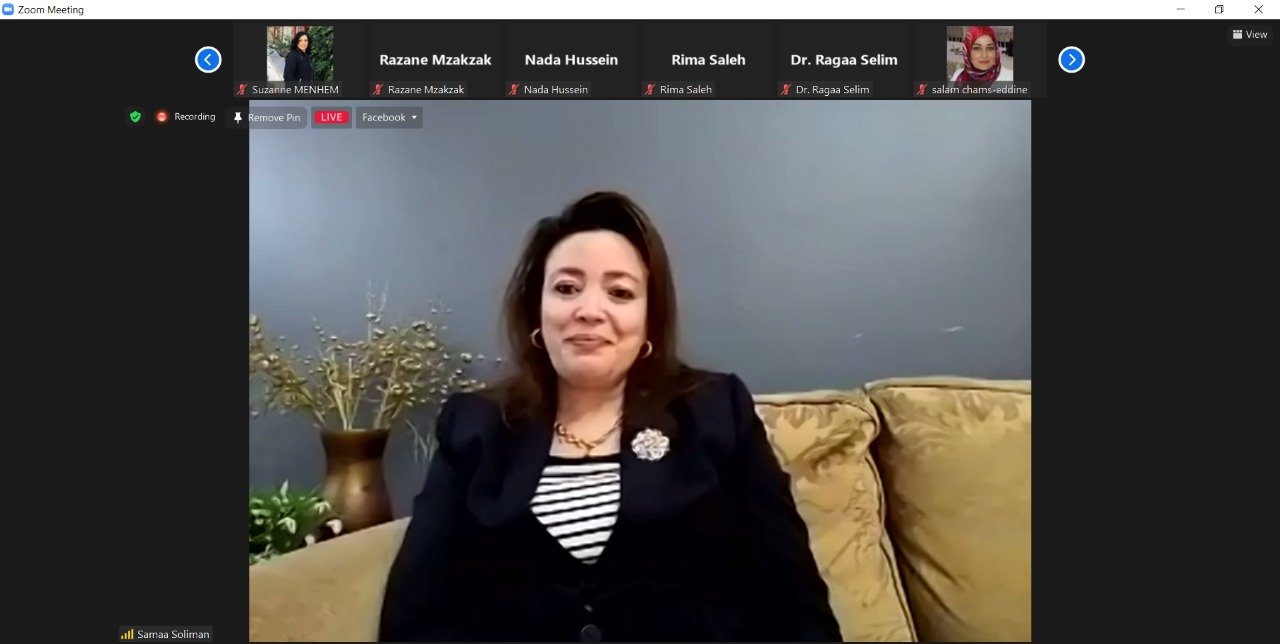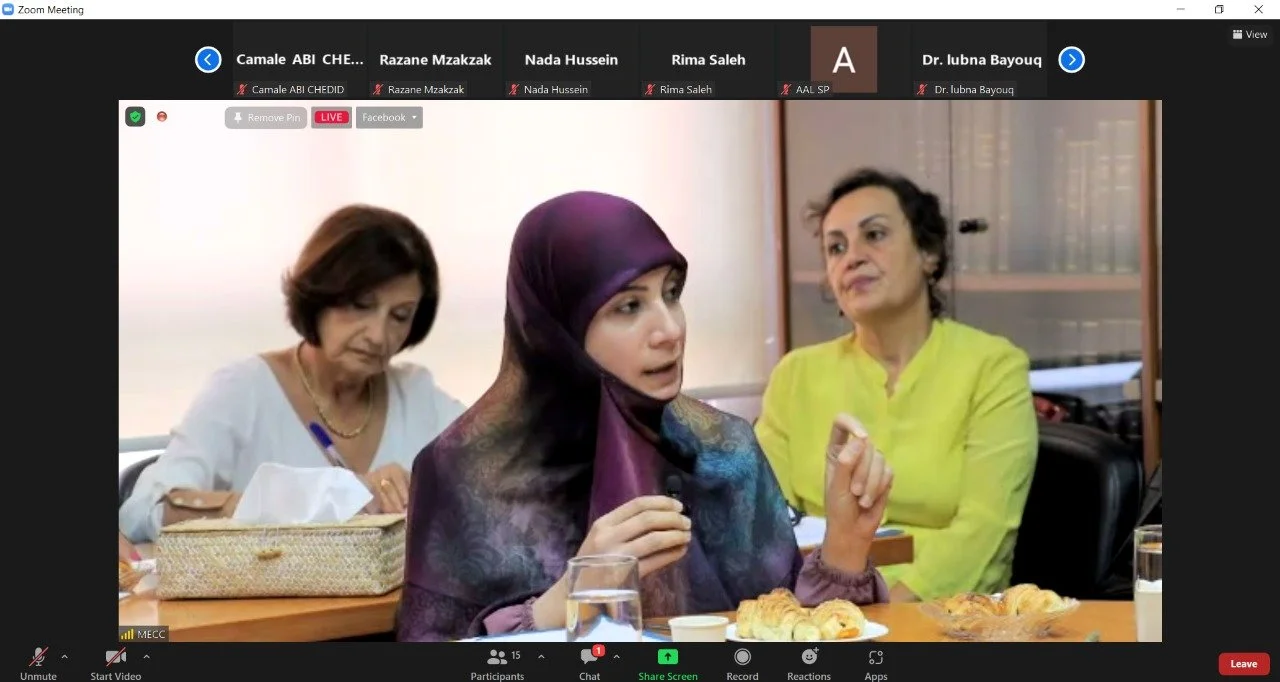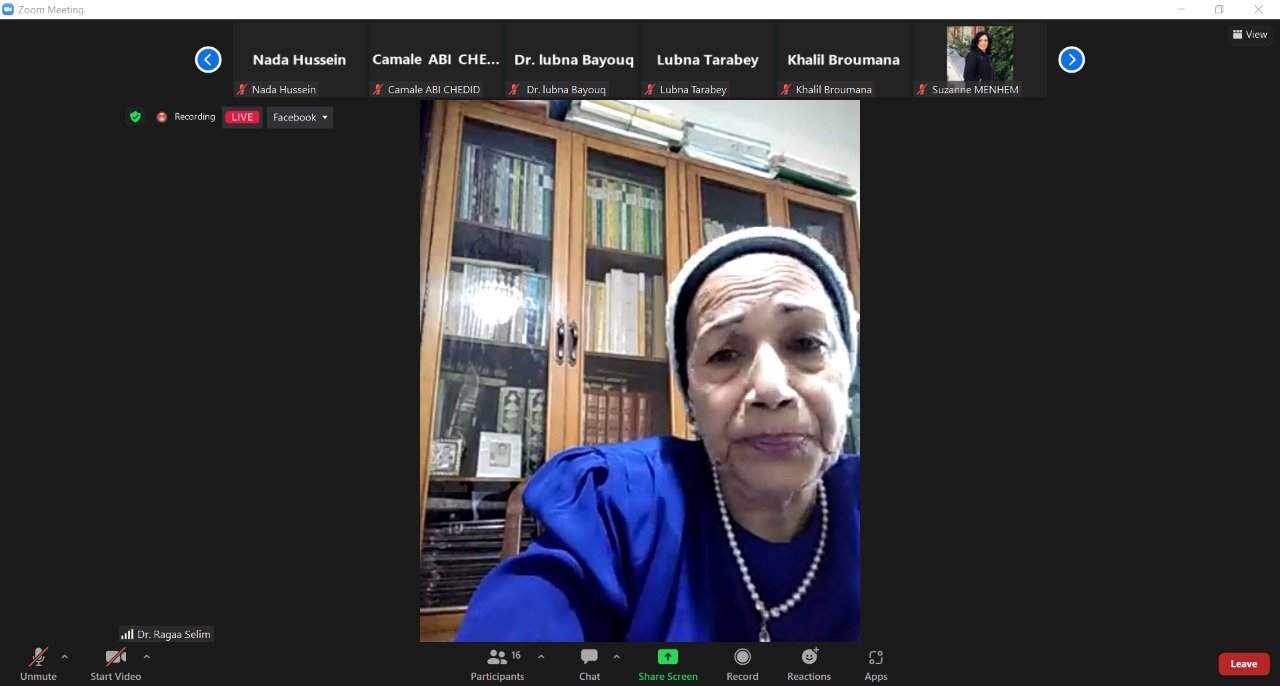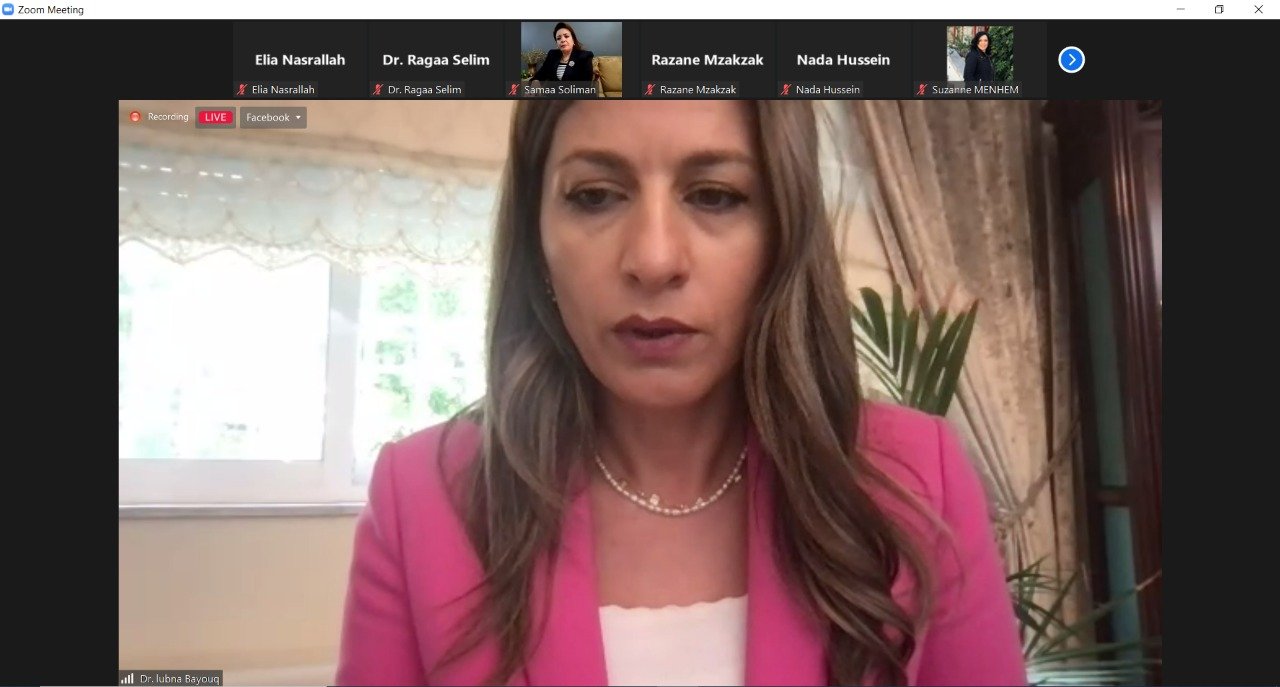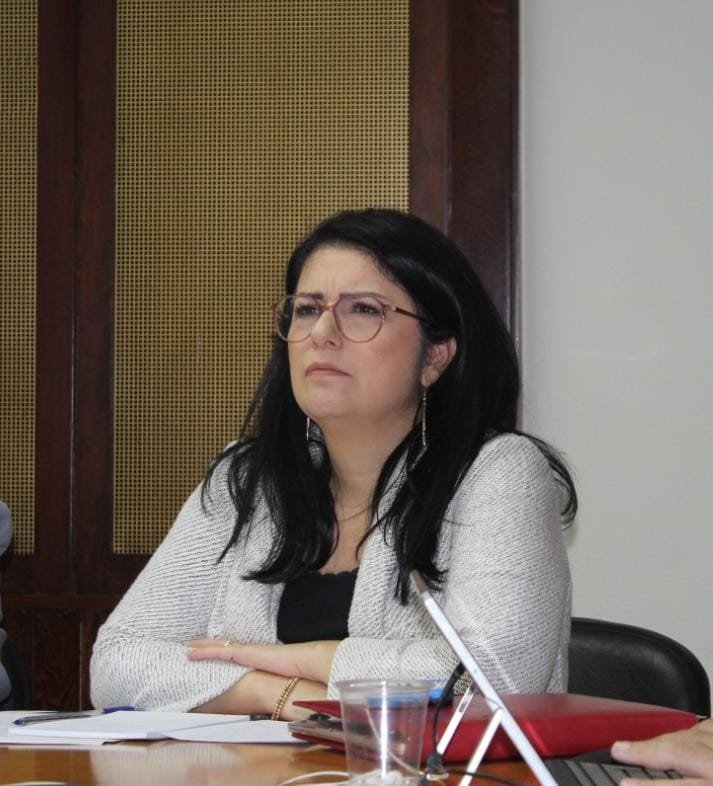"Women and Human Dignity"
Round Table Organized by the Middle East Council of Churches
Secretary General Dr. Michel Abs: woman is the foundations that hold the structure of human life. Jesus Christ charted the course for restoring dignity to women
As part of its monthly seminars, the Middle East Council of Churches organized a round table entitled "Women and Human Dignity", on Thursday 27 October 2022, at the General Secretariat’s headquarters in Beirut, with a hybrid participation of speakers from Lebanon, Egypt, Palestine and Jordan.
During the two sessions of the round table, from 10am to 2pm, the interventions focused on the human rights and political challenges of women in the Middle East, and was attended by university professors, specialists and students in the MECC offices and online.
The round table was moderated by Dr. Laure Abi Khalil, and started with an opening note by the MECC Secretary General Dr. Michel Abs, in which he described woman as she is patience, steadfastness, long-suffering, and the foundations that hold the structure of human life, but “she is the one who has been rewarded by the human race with various attributes, the hardship of living, and discrimination in all fields… For decades, in Lebanon and the Arab world, we have been witnessing radical changes in the status of women at all levels, and these transformations are the result of different dynamics.” He added “Jesus Christ charted the course for restoring dignity to women since that time.”
Full message of Dr. Michel Abs.
The first session began with an intervention entitled "Women's Rights in Lebanon: A Legal and Church (Orthodox) View" with Judge Dr. Nassib Elia from Lebanon, who presented a historical overview about the texts of the Lebanese Constitution relating to women and their dignity, in addition to the laws, documents and regulations in this context. In addition, President Elia emphasized Christ's view on women and their role since early Christianity.
Then, an intervention on "The Political Role of Egyptian Women: Opportunities and Challenges" was delivered by Dr. Sama Sleiman from Egypt, who highlighted the circumstances of women in Egypt and their political leadership and presence. She also tackled the challenges women are facing in Egypt and the most prominent strategies chosen to guarantee their rights and preserve their dignity.
Full intervention of Dr. Sama Sleiman in Arabic.
The third intervention was entitled "National and Social Challenges Which Palestinian Women are facing" with Dr. Rima Nazzal from Palestine. She talked about these political challenges, especially amidst the continuous occupation, colonialism and internal political division, and the national Palestinian challenges, as well as the social challenges related to demography and human rights and which are similar with the Arab countries.
The next intervention focused on "Women in Law Towards Access to Justice" with Dr. Brigitte Chelebian from Lebanon, who highlighted the circumstances of women and justice in Lebanon amidst the serious crises hitting Lebanon at various levels. She also tackled the issue of access to justice and the strategies taken to protect women, in addition to the most prominent laws in this context.
Following lunch break, the second session of the round table started with an intervention on "Women's Salary and Deferred Release" with Dr. Sawsan Gerges from Lebanon, who presented a study which she prepared within the context of her topic, taking the Hezouk Public School as a model. She also concluded from her analysis that women seek for the education job far from their traditional role as housewife, without hitting the patriarchal structure...
Full intervention of Dr. Sawsan Gerges in Arabic.
Then, an intervention entitled "Lebanese Women and the Illusion of Equality, a Reading of the Gendered Division in Domestic Work" with Dr. Hala Awada from Lebanon, who introduced her approach, tackling women's support for other women involved in the labor market, as well as the impact of the financial and economic crisis on women's professional priorities. Awada presented a definition of work and its gender boundaries, in addition to women's participation in the labor market.
Full intervention of Dr. Hala Awada in Arabic.
The next intervention was centered around "Women challenges between the mother's trust and the nation's cause" with Dr. Haifa Al Imam from Lebanon, who presented stories of some women, who struggled and made a lot of achievements amidst turbulent circumstances in the Arab world.
The second session ended with an intervention entitled "Maintaining human dignity through women empowerment: The Amman Center for Human Rights as a Model" with Dr. Lubna Bayouk from Amman, who highlighted the role of the center in women empowerment and the trainings it organizes towards enhancing women’s capabilities. She also presented the achievements made by the trainings’ graduates and the positions they were able to access.
The round table finished with a session for questions and discussion. The Secretary General Dr. Michel Abs delivered a final message in which he stressed the need to face the age of darkness which we are living by word and thought, so we can move on to the age of lights. Hence, from here comes the importance of the series of seminars which are being organized monthly by MECC.

